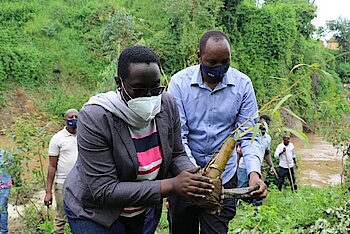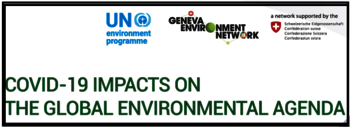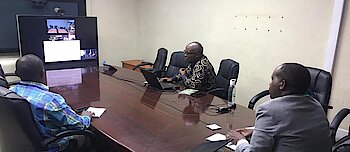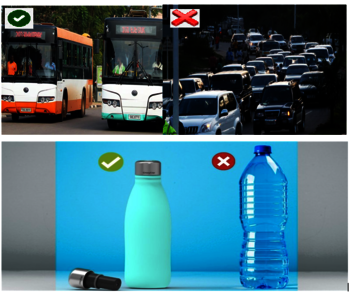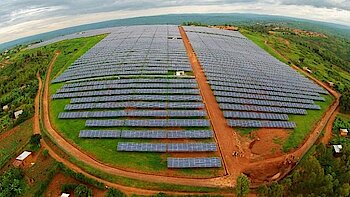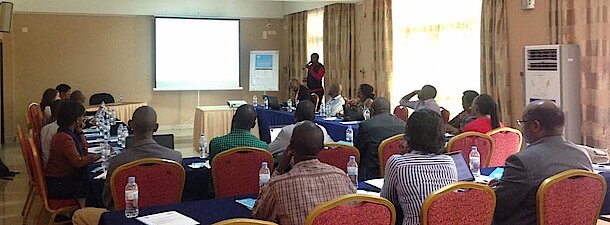
Rwanda NDCs Detailed Implementation Plan disseminated
Nowadays, climate change has become significant and emerging global challenge that the World is facing. Addressing the risks of climate change requires significant efforts by both the developed and the developing world. Unlike in the past years when Non Annex-I Parties (developing countries) to the United Nations Framework Convention on Climate Change (UNFCCC) had no obligations or commitments to reduce GHG emissions ; from Durban platform, developing countries were urged to join the global efforts to reduce GHG emissions.
The decision of the 19th session of the Conference of the Parties (COP 19) the UNFCCC held in Warsaw, Poland in 2013 invited all Parties to prepare and submit their Intended Nationally Determined Contributions (INDCs) to the UNFCCC secretariat before COP 21 held in Paris, France in December 2015.
With ratification of Paris Agreement (PA), the Intended Nationally Determined Contributions (INDCs) are no longer “Intended”, they have become Nationally Determined Contributions (NDCs) as Countries were recalled to look forward to the implementation of climate actions put forward in their NDCs.
In this line of joining global effort to combat climate change, following the ratification of Paris Agreement on 06th October 2016, Rwanda has developed a detailed implementation of Rwanda NDCs to translate committed adaptation and mitigation contributions into implementable measures. The detailed implementation plan of Rwanda NDCs was developed from May to June 2017 through a sector based consultative process. It maps stakeholders that are relevant to varying degrees for implementation.
The key sectors involved in NDCs implementation include Energy, Agriculture, Transport, Industry, Waste, and Forestry, Water use, Land use and Tourism.
Where possible the implementation estimates the costs and sustainable development co-benefits of the actions as well as Measurement, Reporting and Verification (MRV) of results and suggests timelines for their implementation. The plan also outlines capacity needs that must be addressed as well as barriers and risks that the different actions are facing in their implementation and provide recommendations and suggests next steps for a successful implementation
On 26th October 2017, at Lemigo Hotel in Kigali, Rwanda Environment Management Authority (REMA) has organized a dissemination workshop of the report on the detailed implementation plan NDCs to allow its smooth implementation.
To open the workshop, Mrs Coletha U. Ruhamya, Director General of REMA invited all sectors to refer to this implantation plan when implementing the actions related to their specific sectors. This implementation plan will help sectors to monitor how they are achieving the adaptation and mitigation contributions committed in Rwanda NDCs.
Topics
More posts
Rwanda’s NAP Project funded by GEF was launched
The Global Environment Facility (GEF)-funded $6 million project “Building the capacity of Rwanda’s government to advance the National Adaptation…
Rwanda Pledges emissions cut of 38% in its climate action plan by 2030
Rwanda as a signatory to the Paris Agreement under which countries are due to update or communicate their 2030 emission-reduction plans, it submitted…
The Geneva Environment Dialogues discussed the impacts of the COVID-19 on the global climate change agenda
The dialogues took place on Tuesday 19 May, 2020 from 9: 00 to 9:50 on Facebook live, as way of communicating in this time of COVID-19.
this session…
Assessment of Rwanda’s vulnerability to climate change was presented to local authorities
Rwanda Environment Management Authority (REMA), with the logistical support of Ministry of Local Government (MINALOC), hold a video conference with…
Coronavirus responses proves the World can act on Climate Change
The COVID-19 pandemic has provoked a global response unlike anything we have seen before. Governments have witnessed transformational changes that…
COP 26 postponed due to the disruption caused by COVID-19
This crucial climate summit is the 26th session of conference of Parties (COP26) to the UNFCCC and it was scheduled from 9-19 November 2020 in…
Be self-accountable to tackle Climate Change and save environment
Climate change has already begun to impact our planet in more ways than we can think. Temperatures continue to rise throughout the planet and we are…
Switching to electric vehicles is a mean to reduce greenhouse gases emissions and improve air quality in the City of Kigali
Over the last 150 years, human activities have greatly contributed to the increase of greenhouse gases in the atmosphere, which make the planet…
Green Growth as an Opportunity for Business
Twenty-eight years after the Rio Summit, the countries embrace the vision for development by expanding the economy and addressing the environment…
